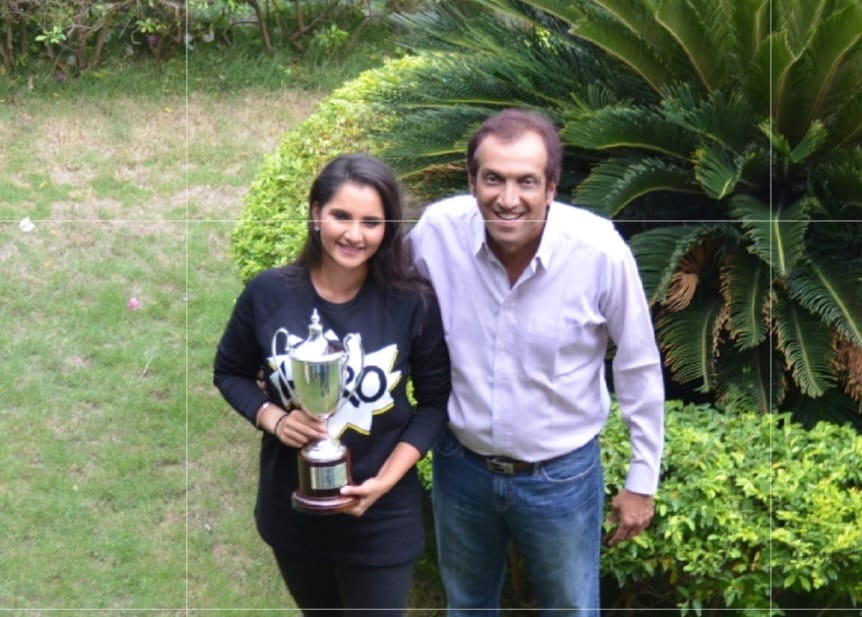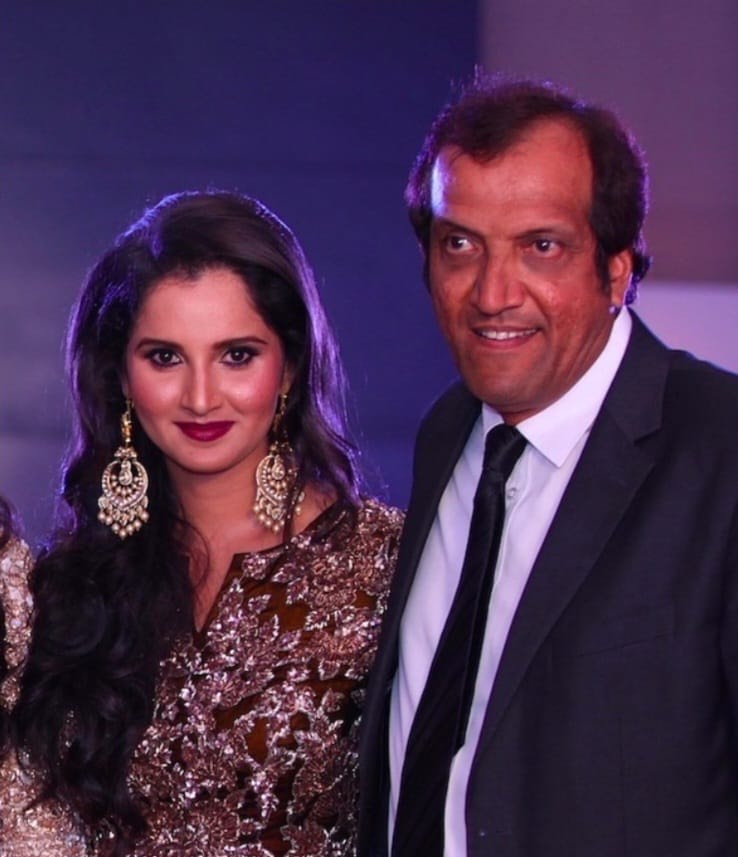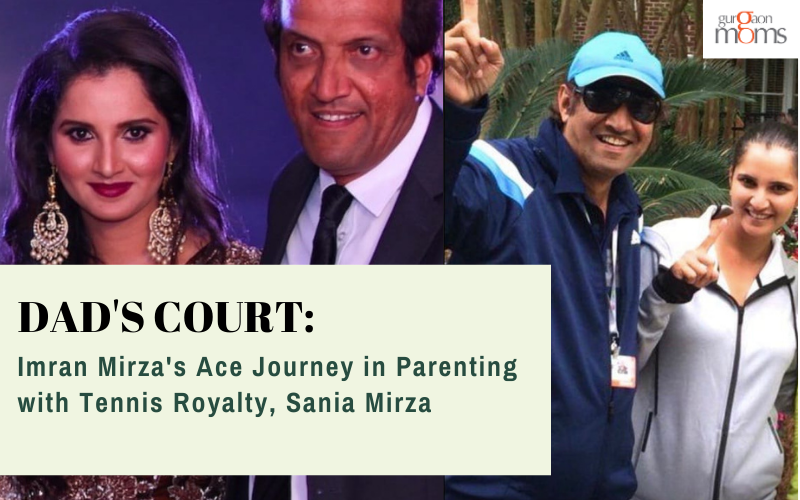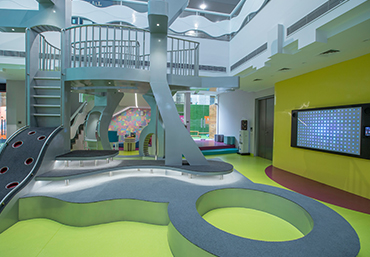Sania Mirza has achieved remarkable success, solidifying her position as one of the most recognized and celebrated athletes. As a former professional tennis player, she has made an enduring impact on the landscape of women’s tennis. The journey to success in tennis, like any sport, involves factors such as talent, dedication, training, and opportunities, with only a small percentage reaching the pinnacle of the professional level.
While we witness the achievements, the hard work and sacrifices behind that success often go unseen.
Mr. Imran Mirza, not just Sania’s father but also her mentor and guide, played the role of her coach during her early years of professional training. In an interview with GurgaonMoms, he shared insights into the unique experience of being a parent to none other than Sania Mirza.
As a parent, how did you support Sania’s passion for tennis?
The Mirzas are a sporting family where cricket is the most popular sport. We have produced a few Test cricketers, first-class and Club level cricketers but importantly almost all of us in our immediate and extended family have played the game at some level. This gives us a sporting background that is so essential to produce an international sportsman. I played a bit of tennis as well though not at a great level but I had played enough to understand the nuances of the game and that helped me to coach Sania with some help from international coaches, who we could not afford for long periods. When Sania was six, it was very natural, coming from our family, to play some sport. It happened to be tennis and she immediately showed a remarkable talent for the game. We kept on encouraging her with whatever it took and she kept performing, growing from strength to strength. What all we needed to do to bring her to the top would take an entire book to explain but to cut it short, it took a lot of sacrifices, financial ups and downs, learning about a sport that has not produced too many top level players from India and a lot of luck to produce Sania Mirza, the tennis champion.

Can you share some of the challenges Sania faced in her tennis journey, and how did she overcome them?
I think the biggest challenge for Sania was that she had to chart out a career in an amazingly competitive global sport that had not seen a top women’s player emerge from our country before her. Hence, she had to create a path that had never been tread on before in India. Her phenomenal talent, her champion’s mentality and a support team that was willing to learn quickly and go the distance was, perhaps, what helped her reach her potential.
How did you balance encouraging Sania’s tennis aspirations while ensuring a well-rounded childhood?
We were extremely conscious of the fact that Sania needed to not miss out on the simple joys of childhood like attending school with her mates whenever she could, going to her classmates birthdays etc and we ensured as much normalcy in her life as we could possibly manage despite the massive task we were trying to achieve of putting Indian women on the world map of tennis.

What advice would you give to parents supporting their children in pursuing a career in sports?
I have said this from various platforms and I wish to emphasise that the parents need to ensure that they do no exert any undue pressure on their kids and this is easier said than done. A parent must understand that every child cannot be a world-beater and he or she must be encouraged to be the best he can be in the chosen sport rather than being subjected to intense pressure from his or her parents to reach heights that he/she is incapable of. Too much pressure from parents can not only damage the relationship with their kids forever but can also leave a negative mark on the personality development of the child that can affect his or her entire life.

Are there any principles or values you believe are crucial for parents supporting aspiring athletes?
Sport must be enjoyed by those who play it and also by those who are part of the support team. I would never encourage anyone to either aspire to succeed in sport purely for monetary benefits or for fame. The key must be to enjoy the sport and the struggle that goes with it and one needs to learn to handle victory and defeat with dignity. In fact, this is the biggest attribute that sport teaches for a life time. I believe that it is passion for sport in the entire team that is an essential ingredient for success in sport and it is this passion that inspires one to go through the several ordeals that one is faced with in the pursuit of sporting success at the international level, particularly in a truly global sport like tennis that is played seriously in over 200 countries of the world.
In what ways do you think family support contributes to an athlete’s mental and emotional well-being?
I believe that family support is the key in shaping the mental make-up of a successful sportsman. As parents, it is very important to not show too many emotions to the child while faced with victories and defeats. A win can be used as a source of encouragement but it is losses that have the potential to teach us more and help the player improve in the long run provided that they are handled in the right spirit. As a family, we would go out and celebrate on the day Sania lost just to indicate to her that as long as she was giving her best, winning or losing was not critical for us. This is very important for a child as he or she doesn’t care what the world says as long as the parents understand their issues. I believe that it was this attitude that helped shape Sania as a fierce competitor under extreme pressure once she grew up and took on the professional tour as all that she was focused on was to give her best.
What is the key to gracefully accepting defeat in a match without experiencing an emotional breakdown?
It is the support team and the family that provides the soothing balm to overcome painful losses. As a coach-cum-parent, I was in the best position to time myself while dissecting losses with Sania as I would wait for the right moment when my ward was in a frame of mind to absorb my comments. This could be a day or two after the loss, rather than immediately after a match when she was emotionally drained. I also made it a point to wear dark glasses while on court during matches to make sure that my eyes did not give away any disappointment that I may have felt with my player’s performance.

Do you think it is harder for women to break barriers in sports?
Women are by nature more emotional and biologically different to men and as a coach one has to keep this in mind. With women it is more about helping them handle emotions in order to get the best out of them on the court and this takes a different kind of temperament. Its very rare that a successful men’s coach can be equally good in handling the career of a woman tennis player.
What changes would you like to see in the sports community to foster a more inclusive environment for women?
While steps have been taken in the right direction, a lot still needs to be done. In tennis, although the prize money for men and women is equal in Grand Slams and some big tournaments, in a majority of the other tournaments, the prize money for women is considerably less compared to the Men’s Tour. This needs to change. Secondly, as a society, we, specially in India, need to believe that sport can be a career option for talented women as much as it is for men.





